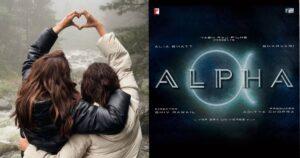We’ve all heard stories from our parents about the super-stardom enjoyed by Rajesh Khanna. Back in his heydays, the actor was loved, adored and even worshipped for his signature style, his wardrobe choices and his films were considered nothing less than a festival.
The actor’s name was synonymous with success and though he gave heart-warming performances in films like Aradhana (1969), Namak Haraam (1973) and Roti (1974), Anand (1971) still stands out as his most memorable performance.

Directed by Hrishikesh Mukherjee, the film is the story of Anand, a man whose energy and love for life is undeniably infectious. After he is diagnosed with cancer, his zest for living every moment to the fullest becomes his sole target. He wants people around him to be happy, even if he has to conceal his sadness for it.
Even a stranger on the road would always remember his encounter with the jovial Anand, because that’s how much he appreciates the sweet nothings in life.
Rajesh Khanna played Anand in a bittersweet, melancholic way and for that, he’ll always be remembered.

Anand exposes his joyful side to the world but never really discusses his fears with anyone. A lifeless flower buried in his notebook narrates the tale of his lost love but Anand never talks about it to anyone.
Rajesh Khanna portrayed this unsaid emotion in a poignant way during the song Kahin Door Jab Din Dhal Jaaye. With a slight twinkle in his eyes, he bares his heart when no one is around.

Director Hrishikesh Mukherjee was known for the way he portrayed complex emotions in a simplistic style. His storytelling technique was full of heart that had the ability to leave the audience teary-eyed.
The film also stars Amitabh Bachchan in a pivotal role. The man with a tough exterior who softens up after Anand enters his life. He learns to laugh, appreciate little joys like a walk on the beach and even gathers courage to confess his love.

The film’s climax is a bundle of emotions and the moment Anand’s voice starts playing on the recorded tape can reduce the best of us into tears. Throughout the film, the director prepares us for Anand’s departure but when he actually leaves, it breaks our heart.
The film ends with a dialogue that looks ahead optimistically even in the moments of tragedy. And with those lines, Anand became immortal.
“Anand mara nahi. Anand marte nahi.”

















